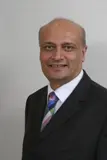 In the travel industry, business processes and technology tend to restrict whether companies can easily reduce the costs of extending their product range or selling more flexible products.
In the travel industry, business processes and technology tend to restrict whether companies can easily reduce the costs of extending their product range or selling more flexible products.
The package approach
Building packages and the supporting content and contracts are time-consuming. In order to give flexibility to customers, the tour operator must simply build more and more packages. There are obvious advantages to the package approach in terms of control, especially in charter markets, but the costs of flexibility are huge.
The dynamic packaging approach
The tour operator might consider taking a dynamic packaging approach to the problem; buying or building a traditional dynamic packaging engine, which could take flights from a GDS and hotels from direct connects, bed banks or switches, and connecting them together.
This approach will, however, create three key problems for the tour operator:
Firstly, it will lead to problems with customer expectations. The tour operator?s normal customers expect a complete end-to-end holiday experience. For example, on a golfing holiday in Andalusia, they might expect to have their green fees included in the price of their holiday.
Secondly, they might expect to be able to easily change parts of their holiday. Whilst changing a hotel for a different hotel might be easy with a traditional dynamic packaging engine, adding a second hotel or managing a tour might be much more complicated.
And finally, in charter markets, the tour operator will either struggle to manage the balance of their beds and seats, or, in avoiding this, will provide little or no customer flexibility.
A new approach
The attempt by internet companies to change the way that packages are sold using simple dynamic Ppackage engines has failed to eat away significantly at the business of traditional tour operators because it fails to address the key issues above.
The first and third issues, that of customer expectations of end-to-end service and bed-seat management, is currently the domain of the mass tour operator; the second issue, that of complexity and flexibility, is currently the domain of specialist tour operators.
Newer technology providers are beginning to blur the edges of these traditional markets. An example of this is CodeGen?s TravelBox reservation system. CodeGen can provide their customers with the chance to have a similar speed-to-market and range of product to the Online Travel Agencies, whilst retaining the end-to-end service levels and stock control of Mass Tour Operators and the complexity and flexibility of Specialist Tour Operators.
Combined with a strong website and good marketing they could bring an Amazon-like market dominance to a large player if it were the first adopter, although both TUI and Thomas Cook seem to be taking a more conservative approach to the technology, allowing the second rank of tour operators and some smaller operators to take this opportunity first.
Who adopts this approach and how they use them commercially could have a significant affect on the balance of power in UK leisure travel.
For more information visit www.codegen.co.uk
















